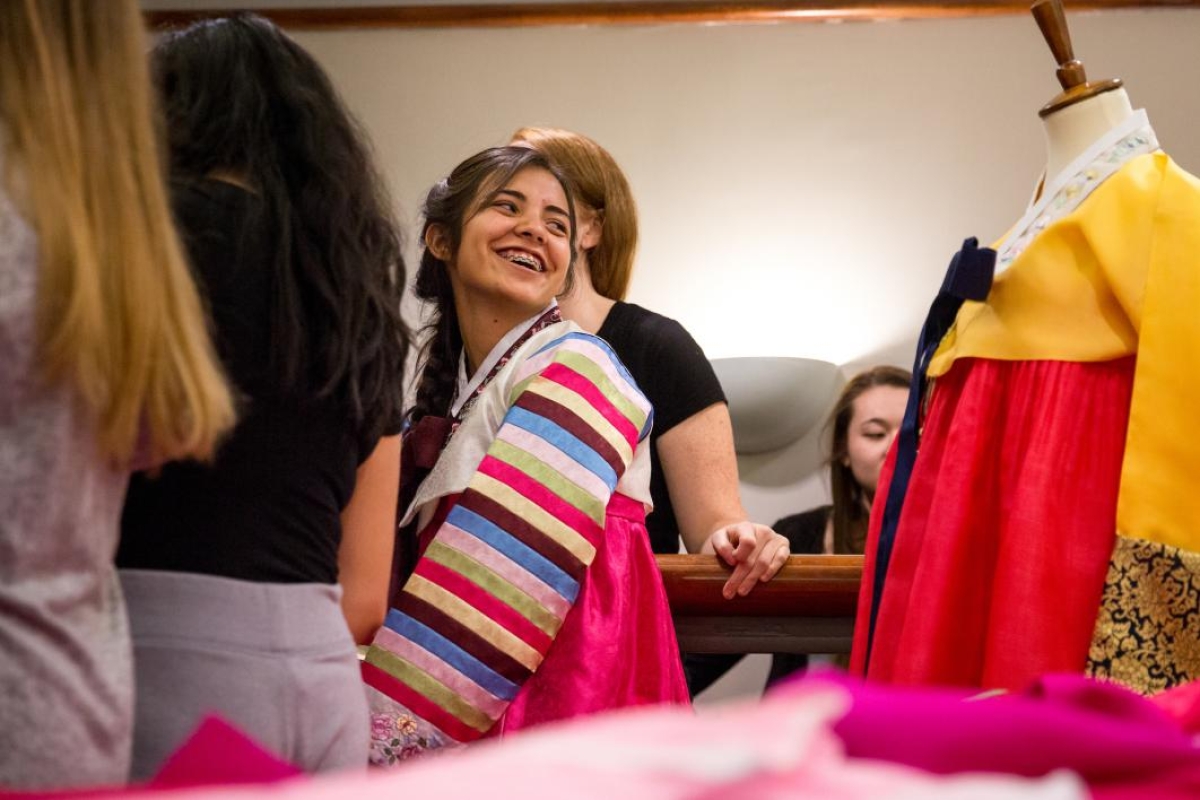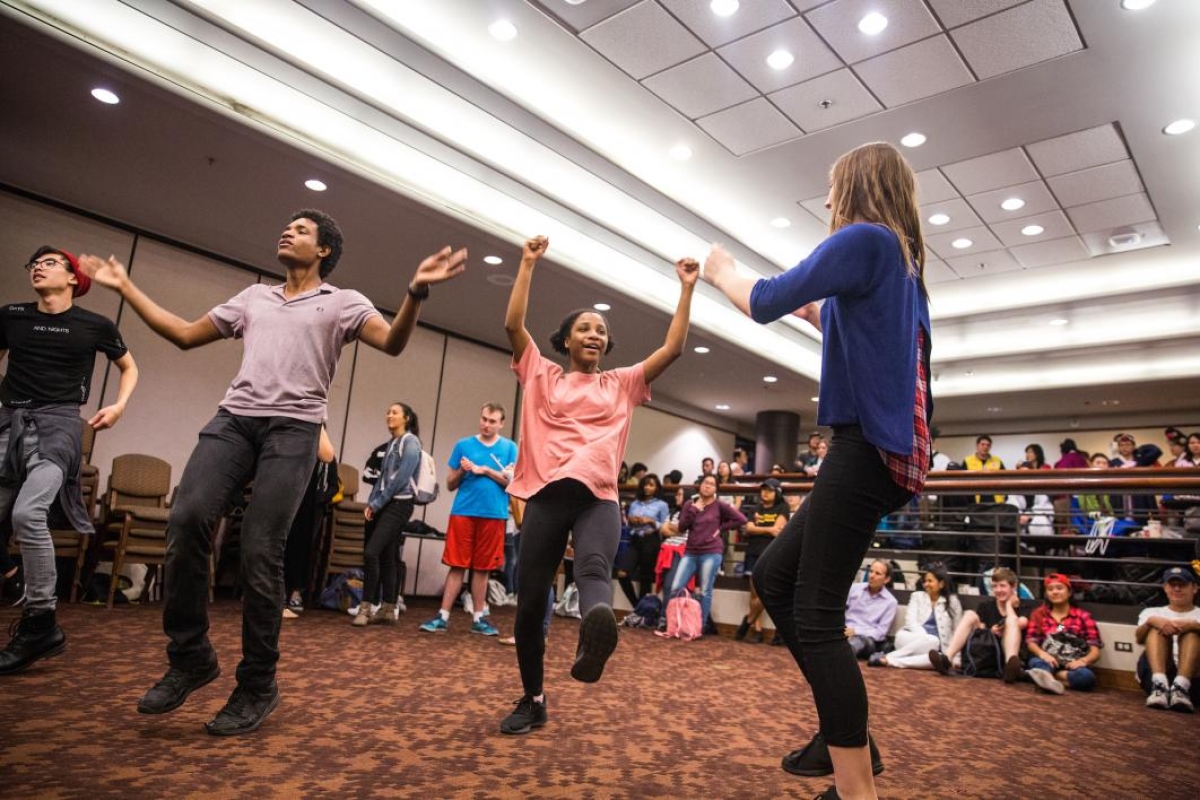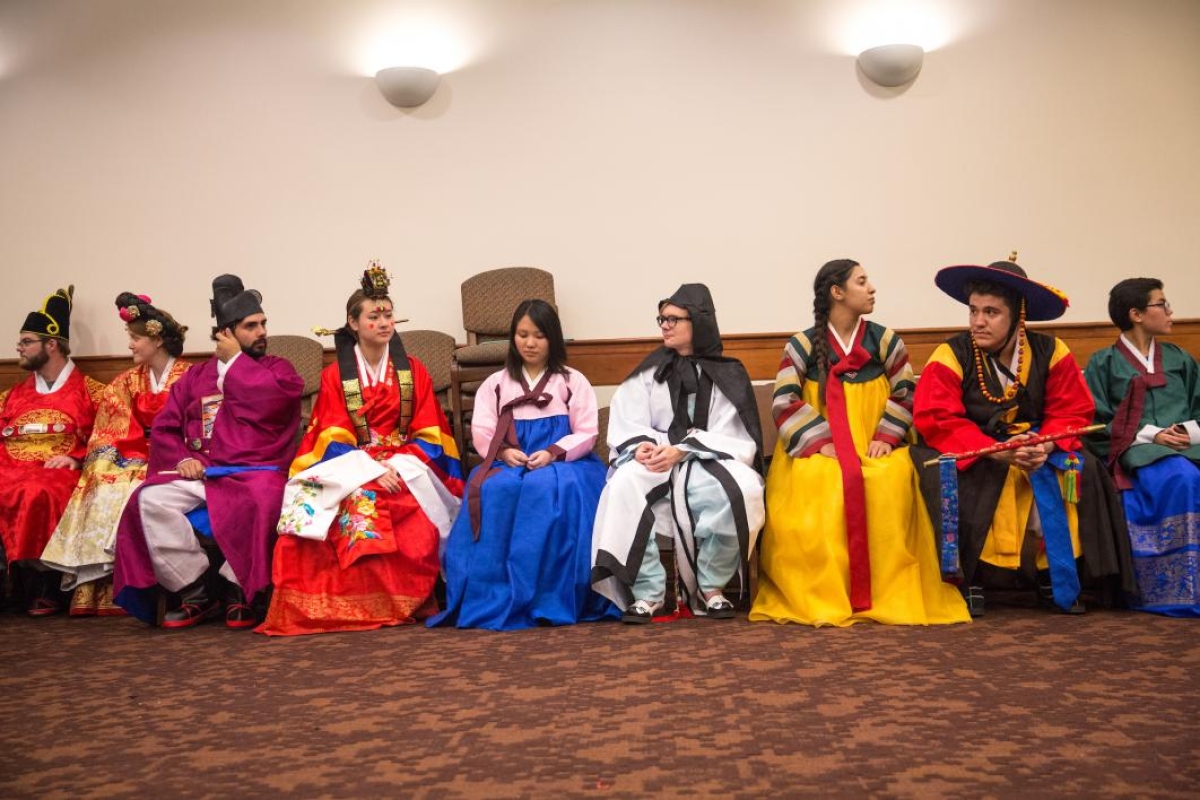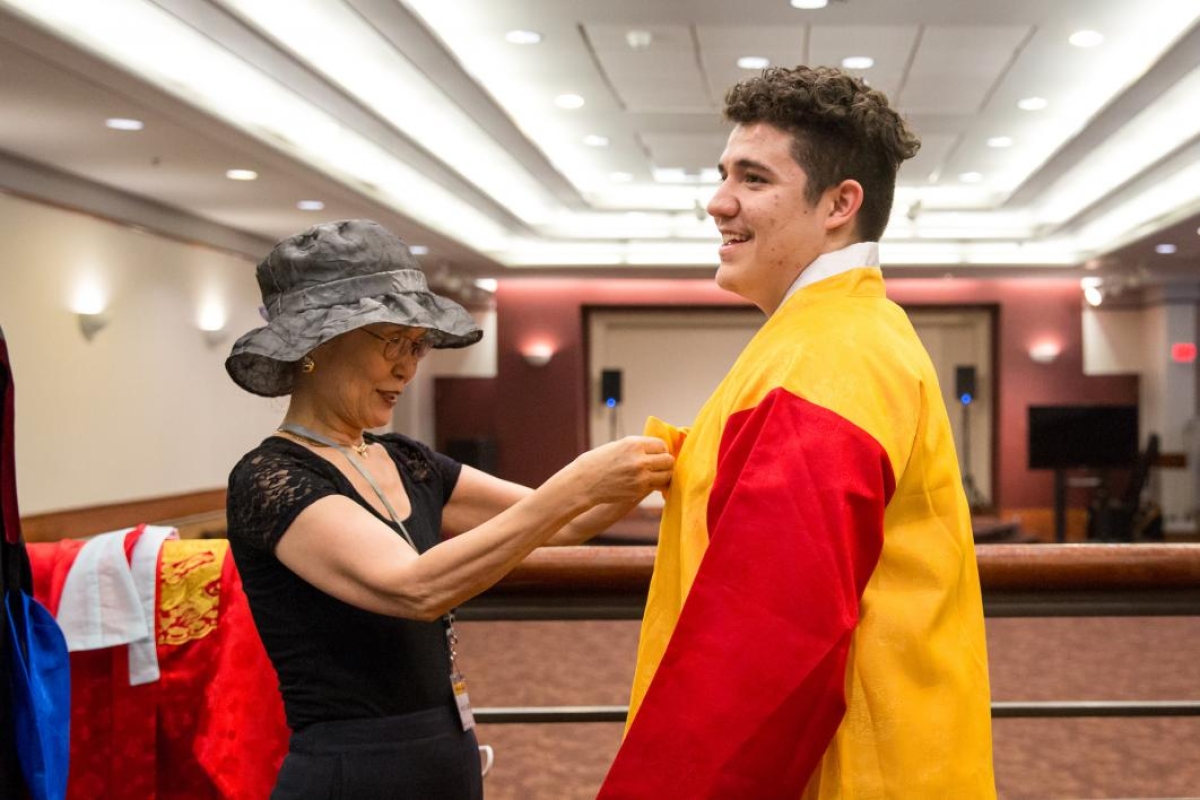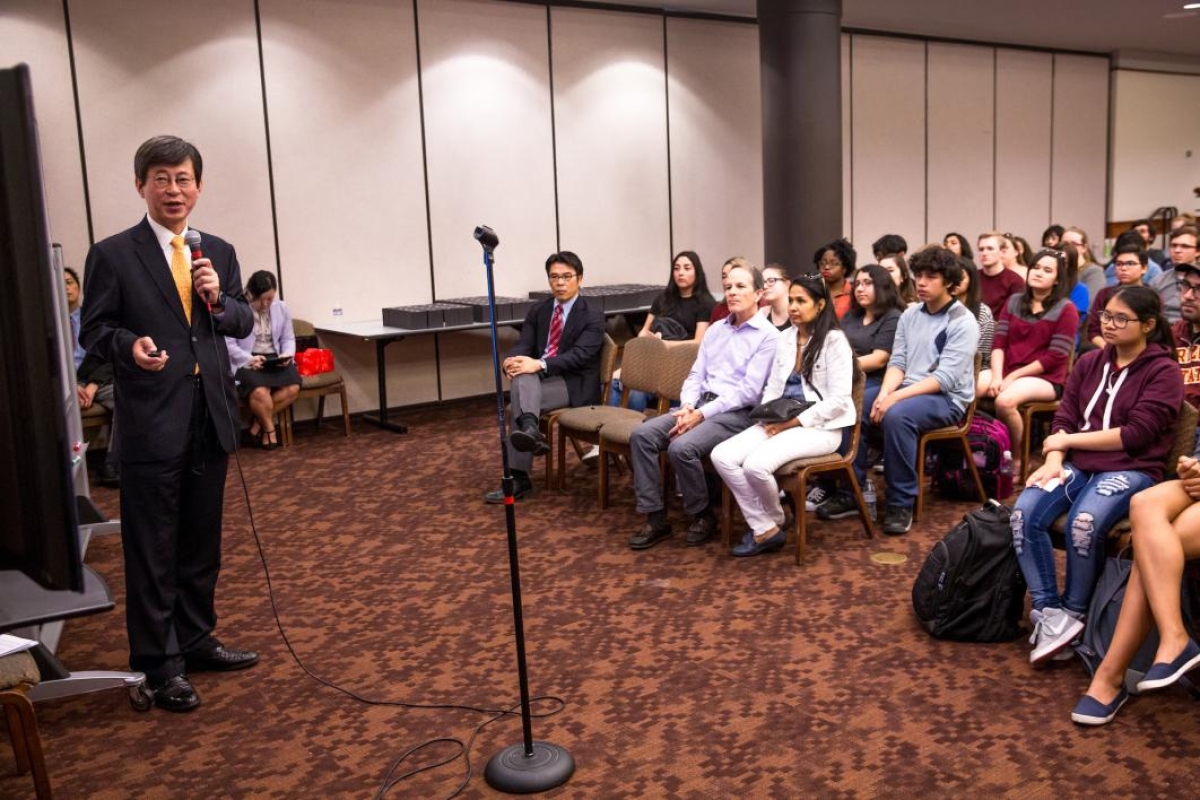ASU school opens Korea Space to increase understanding of E. Asian nation

Students on the lower level of the Memorial Union on Wednesday afternoon seemed unfazed by the Korean language pop song blaring from the Union Stage area. K-pop — the South Korean music genre characterized by a wide variety of audiovisual elements — has, after all, found a huge fan-base stateside over the past decade.
The popularity of K-pop and other cultural exports, such as film and video games, are emblematic of the country’s increasing influence in America, said Aaron Moore, associate professor of history. Much of that was on display Wednesday at the School of International Letters and Cultures’ Korea Day, a daylong celebration featuring taekwondo demonstrations, traditional music and ceremonies, Arizona State University’s own K-pop dance group KoDE and more.
But it goes beyond just culture — South Korea is the eleventh-largest economy in the world, No. 1 in Internet technology and No. 5 in automobile production, not to mention the country of origin of the multinational conglomerate Samsung. It also happens to be geographically connected to the nation behind one of today’s biggest global security concerns.
“Economically, politically, culturally, South Korea is a very interesting place,” Moore said, and students are picking up on that. “Over the past 10 years, there’s been a huge interest in Korea that has caught everybody by surprise at our university.”
Now, students will have a physical place to go to indulge that interest with the opening of the Korea Space in the Language and Literature building, room 173N. The space, funded by a $32,000 seed grant from the Consulate General of the Republic of Korea, will be home to various Korean historical and cultural items, as well as informational databases, and eventually multimedia tools.
“The biggest challenge for a teacher is to make Korea more than an abstract place in a book or a language drill,” Moore said. “We envision Korea Space as an open, lounge-like space that encourages collaboration, where classes can meet and students can immerse themselves in the subject.”
About two years ago, Moore was contacted by the nonprofit public diplomacy organization Korea Foundation, which had been working with Korea’s Ministry of Foreign Affairs to promote Korean studies and cultural understanding in foreign countries through Korea spaces at libraries and community centers.
They’d had a lot of success doing so in California and wanted to expand to Arizona — and specifically ASU — because of the state’s growing Korean population and the university’s strong Korean language and culture program within the School of International Letters and Cultures (SILC).
Moore worked closely with SILC Associate Director Andrew Ross and faculty Sookja Cho and Bomi Oh over the next couple of years to secure funding, brainstorm ideas for the space and work out logistics.
“There is a need to acknowledge the growing number of Korean heritage learners at ASU,” Ross said, “and to grow to meet their needs and expectations.”
One suggestion Ross and the others have made to the Korean consulate already is to create a network of all the existing Korea spaces throughout the country and the world, in order to further engage students globally. And the space will be a priority consideration when it comes time to renovate the Language and Literature building.
“This is an opportunity for us to show the consulate that this is something that will be included in our plans going forward,” Ross said, “and to establish the Korea Space as part of SILC’s overall footprint on campus.”
At Wednesday’s Korea Day event, audience members were treated to demonstrations of martial arts, traditional clothing and dancing by ASU's K-pop dance team KoDE. Everest Xu, a digital and integrated marketing communications senior, became interested in Korean culture during her freshman year of high school when her friends introduced her to K-pop.
“I like the variety and the entertainment of K-pop,” she said. Her interest carried over into college at ASU, where she is the lead dancer for KoDE and is enrolled in a Korean language course.
In a special guest lecture Wednesday, L.A.’s Korean Consul General Key Cheol Lee talked about how happy he has been with his life in the U.S. over the past couple of years since moving here.
“The best part of the U.S. is the people, the American citizens,” Lee said. “They are kind, tolerant and open-minded. But I have one complaint about the American people: They know too little about South Korea.”
With the establishment of the Korea Space, that may no longer be the case at ASU.
Top photo: ASU's K-pop dance team KoDE (K-pop Dance Evolution) performs on the Union Stage in the basement of the Memorial Union on Wednesday in Tempe. Everest Xu (second from right) leads the team. Photo by Anya Magnuson/ASU Now
More Law, journalism and politics
Spring break trip to Hawaiʻi provides insight into Indigenous law
A group of Arizona State University law students spent a week in Hawaiʻi for spring break. And while they did take in some of the sites, sounds and tastes of the tropical destination, the trip…

LA journalists and officials gather to connect and salute fire coverage
Recognition of Los Angeles-area media coverage of the region’s January wildfires was the primary message as hundreds gathered at ASU California Center Broadway for an annual convening of journalists…

A new twist on fantasy sports brought on by ASU ties
A new fantasy sports gaming app is taking traditional fantasy sports and mixing them with a strategic, territory-based twist.Maptasy Sports started as a passion project for Arizona State University…


